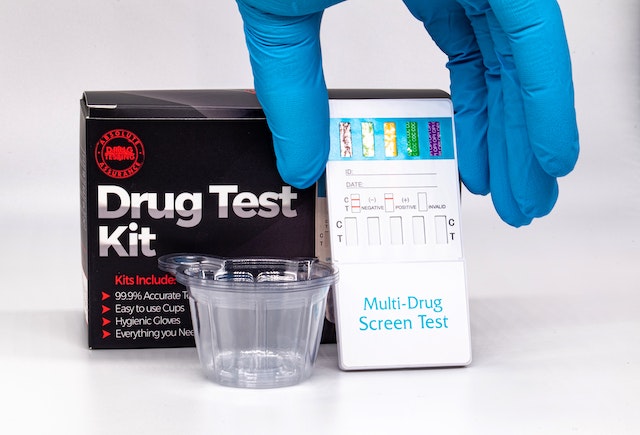Drug testing is a common part of many job searches and hiring processes. Learn the details about drug testing to understand your results and confidently pass any screenings.
Drug tests use a sample of your blood or urine to detect the presence of certain substances in your system. This is done for various reasons, including medical and legal purposes.
What Is A Drug Test?
A drug test is an examination that detects the presence of drugs and their metabolites (additional chemicals that the body produces when a drug is absorbed) in a biological sample, such as urine or blood. These tests can be used for many purposes, including pre-employment screening and medical and legal testing.
A urine drug screen is the most common type of drug test, and it can quickly and effectively detect a wide variety of substances. Physicians often order this type of test, sports officials, and employers.
Urine samples are collected from a clean container that the person provides to a medical professional or technician. Different drug screenings can be performed, including immunoassays and GC-MS tests.
Depending on the reason for the drug test, results may come back instantly or take a few days to produce. If the result is positive, it usually requires a second confirmation test.
Other types of testing include hair, saliva (oral fluid), and sweat. Before collecting these specimens, they must be properly prepared, cleaned, and analyzed. For example, saliva-based tests use a chemical that can trigger a color change in the saliva when a drug is present.
How Do Drug Tests Work?
Drug testing is a common practice in many organizations to help employers identify candidates who might be risky hires or pose a threat to safety. However, it can be difficult to determine when a drug screen or drug test is the best option for your organization.
Most companies use urine samples for drug screening, but hair or saliva samples may also be used. The samples are collected by a trained collector who visits your workplace or is sent to an HHS-certified laboratory.
Immunoassay tests measure how the drug interacts with your body’s immune system and how well it forms antigen-antibody complexes. Results are expressed in nanograms per milliliter (ng/mL).
In some cases, instant drug testing may be performed using a test strip that changes colors to indicate different substances. The results are usually interpreted by a medical review officer (MRO).
A negative result means the drug was not detected in your urine sample. It might have been due to some factors, including that you had not used the drugs tested in the last few days or that the level of the drug needed to be higher for the test to detect.
On the other hand, confirmation drug testing uses more specific test methods to ensure that only substances actually used in the past can be detected. This improves the accuracy of overall drug testing, reducing the risk of false-positive results (when someone tests positive for a drug even though they have never used it).
What Are the Different Types of Drug Tests?
Various drug tests can be used to determine the presence of drugs in your system. The most common type of test is urine testing (UDT), but you may also get a blood, hair, saliva, or oral fluid test.
The type of testing you’ll need depends on your situation. For example, you might need a urine drug test if you’re being investigated for drug abuse or if you have a medical condition requiring ongoing substance use monitoring.
Another option is a hair follicle drug test, which detects repeat drug use up to 90 days after you stop using the drug. The advantage of this type of test is that it’s more sensitive than urine and can detect metabolites, which are chemicals produced when the body breaks down drugs or other substances.
Some home drug test kits are available that let you provide a sample of urine, breath, or saliva at home for rapid results. However, these at-home tests often have less sensitivity than formal laboratory tests, so you might need a follow-up lab test to confirm that the home test was accurate.
What Are The Results of a Drug Test?
The results of a drug test tell you what drugs and their metabolites are in your body. The tests are usually done with a urine or blood sample.
Most urine testing is done by a health care professional using a small needle to draw a sample of your urine into a container provided. In other cases, a doctor may take your blood or breath as part of a more comprehensive test.
A positive result on a drug test means that there is evidence of drug use in your sample. This could mean that the substance you tested for is present in the amount that indicates recent use or a possible substance use disorder.
A negative result on a drug test means there was no evidence of drug use in your sample. This can be because you have not used the specific drug in question or last used the substance outside its detection window.
The results of a drug test can be confusing. If you’re concerned about a test result, ask a doctor or someone else who tested it.
A positive result on a drug test usually means that a substance was detected in your sample at or above the reference range for that specific test. A positive drug test also usually requires a follow-up test, known as a confirmatory test. This type of test is usually done by an HHS-certified laboratory and uses more specific drug testing methods to provide accurate and meaningful results.

